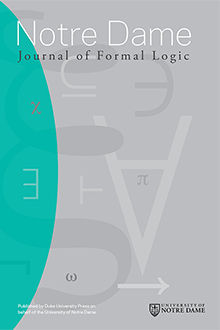Abstract
We develop a logical system that captures two different interpretations of what extensive games model, and we apply this to a long-standing debate in game theory between those who defend the claim that common knowledge of rationality leads to backward induction or subgame perfect (Nash) equilibria and those who reject this claim. We show that a defense of the claim à la Aumann (1995) rests on a conception of extensive game playing as a one-shot event in combination with a principle of rationality that is incompatible with it, while a rejection of the claim à la Reny (1988) assumes a temporally extended, many-moment interpretation of extensive games in combination with implausible belief revision policies. In addition, the logical system provides an original inductive and implicit axiomatization of rationality in extensive games based on relations of dominance rather than the usual direct axiomatization of rationality as maximization of expected utility
Citation
Boudewijn de Bruin. "Common Knowledge of Rationality in Extensive Games." Notre Dame J. Formal Logic 49 (3) 261 - 280, 2008. https://doi.org/10.1215/00294527-2008-011
Information





